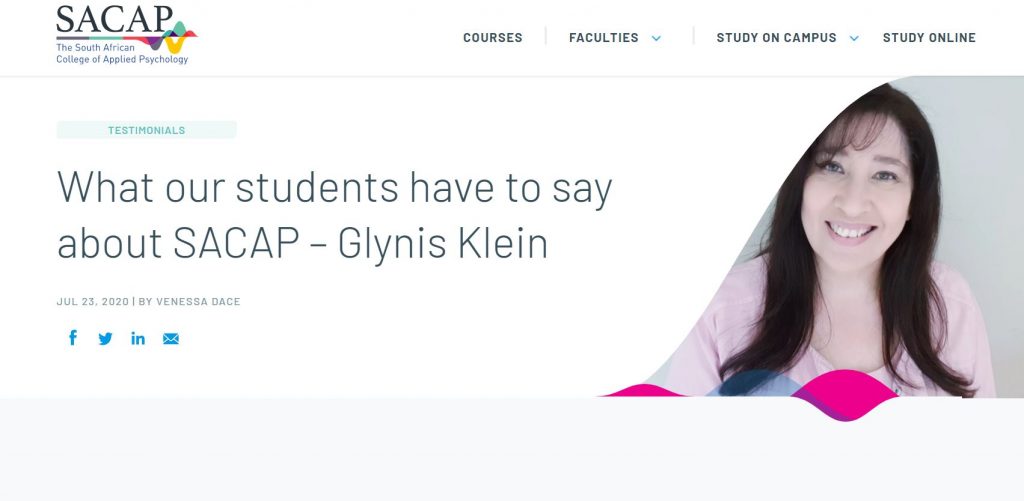
Earlier this year, the South African College of Applied Psychology (SACAP) invited me to reflect on my learning journey as a returning adult student. I began my studies at SACAP four years ago and am currently in the final stage to complete the Bachelor of Applied Social Science degree. You can read the published interview here.
Tell us a bit about you?
“My childhood experiences growing up in a displaced environment evokes bittersweet memories of a vibrant community life intertwined with some horrific dark events, some of which haunts me to this day.”
Where did you grow up?
I was born in Cape Town in the late 1960s and spent my childhood in a displaced township community against the backdrop of South Africa’s apartheid era. We were a family of seven, living in a two-bedroom semi-detached dwelling. We stayed in a cul-de-sac, strung alongside 15 other families. Mothers shared everything, from a cup of sugar to their daily worries about finances and troublesome marriages.
I treasure fond memories playing in that cul-de-sac in rain or sunshine, eager to join in the children’s games. In our techno-driven society, those childhood games are called indigenous play. Children obediently followed the rules of the households. I shared in a vibrant community culture, which included running errands for the neighbourhood moms. Childhood obedience continued at least until puberty set in, and obstinate temperaments surfaced.
Impact of Apartheid
As children growing up in relative poverty, we were blissfully unaware of the complex social structures that surrounded us. Chronic poverty and dysfunctional coping affected everyone to some degree and, therefore, seemed the norm. The oppressive structures of apartheid and all its grievous subtexts resulted in many layers of loss for families of colour, including my own. Such families scrambled to survive in substandard living conditions, deprived of fair employment opportunities, inadequate healthcare and substandard education. Poverty, crime, patriarchal social constructs created debilitating internalised beliefs which required conscious self-awareness and intentional unravelling.
Early Loss
My early memories are tainted with adolescent grief at the sudden death of my father. The loss disrupted my first year in high school, shattering my cohesive family. The experience of grief and loss at such a young age was devastating. Without the tools to navigate grief, the loss impacted my adolescent development in ways I continue to unravel. My childhood experiences growing up in a displaced environment evokes bittersweet memories of a vibrant community life intertwined with some horrific dark events, some of which haunts me to this day. My personal experiences with loss and trauma have motivated interest in creating supportive resources to others navigating grief, loss and trauma.
Life Journeys
I recently read a book by Parker J. Palmer, who writes about learning to understand our true selves and rediscovering our purpose. Palmer writes:
“Some journeys are direct, and some are circuitous, some are heroic, and some are fearful and muddled. But every journey, honestly undertaken, stands a chance of taking us toward the place where our deep gladness meets the world’s deep need.“
My life journey and personal stories weaved throughout this website encapsulate the elements captured in Palmer’s statement. May the resources available on this website inspire you to become a little more courageous, a little less fearful, a little more honest. More importantly, may it propel you to shine your unique light in the dark world to make it a little brighter.
Welcome to my Reflections at Fifty.
